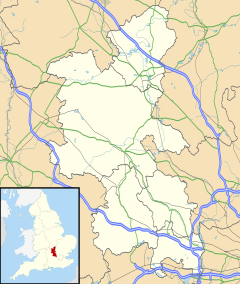Great Linford
| Great Linford | |
|---|---|
 The Pavilion Great Linford Arts Centre |
|
| Great Linford shown within Buckinghamshire | |
| Population | 19,350 (2011 Census) |
| OS grid reference | SP854414 |
| Civil parish |
|
| Unitary authority | |
| Ceremonial county | |
| Region | |
| Country | England |
| Sovereign state | United Kingdom |
| Post town | MILTON KEYNES |
| Postcode district | MK14 |
| Dialling code | 01908 |
| Police | Thames Valley |
| Fire | Buckinghamshire |
| Ambulance | South Central |
| EU Parliament | South East England |
| UK Parliament | |
Great Linford is a historic village, district and civil parish in the northern part of Milton Keynes, England, between Wolverton and Newport Pagnell.
Great Linford was one of the North Buckinghamshire villages incorporated into Milton Keynes at its designation in 1967.
Written as Great Linford to distinguish it from the even tinier Little Linford, the village is another on the Grand Union Canal. The name Linford is thought to derive from the crossing point over the River Ouse which now separates Great Linford from Little Linford to the north, where there were linden trees. The first reference to Linford occurs in 944, when "King Edmund gave to his thegn Aelfheah, land at Linforda with liberty to leave it to whom he wished"; it appears in the Domesday Book as Linforda. Today, the outer buildings of the seventeenth-century Linford Manor form an Arts Centre, and the house itself is a recording studio.
In the early sixteenth century, the rector of this parish Dr Richard Napier was widely known as a medical practitioner, astrologer and curer of souls. He was referred to by many in the upper classes, including the Earl of Sunderland who lived under his care for some time in 1629.
Between 1817 and 1864 the village was the site of the junction between the Newport Pagnell Canal and the Grand Junction Canal.
...
Wikipedia

